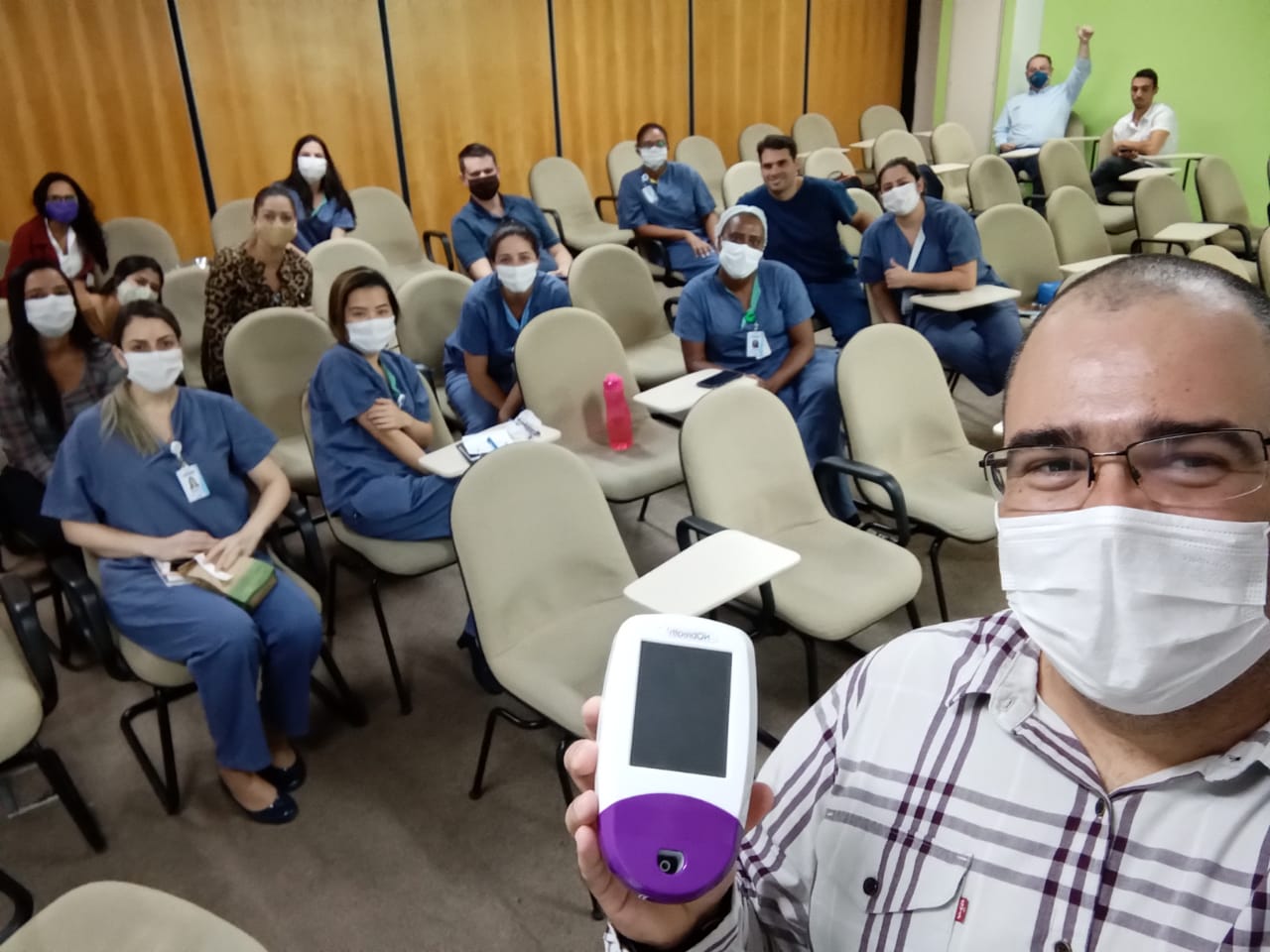Studies underway for the correlation of FeNO and COVID-19
- The NObreath Fractional exhaled Nitric Oxide (FeNO) monitor from Bedfont is being used in a novel study to see if FeNO levels are affected by COVID-19

Testing has started at the Hospital Policlin São José dos Campos in Brazil to establish what effect SARS-COV-2 (COVID-19) has on FeNO levels, and if measuring FeNO can act as a biomarker of prognosis for COVID-19 patients. The study, conducted by Professor Rodolfo de Paula Vieira, uses the NObreath® FeNO monitor from Bedfont Scientific Ltd. to take measurements during the initial consultation, together with other parameters.
Prof. de Paula Vieira explains, “High levels of FeNO have been associated with bronchial inflammation, remodeling (fibrosis) and hyperresponsiveness in asthmatic patients, and especially asthma severity and prognosis. Thus, due to the nature of the inflammatory and rapid fibrotic process found in COVID-19 patients, we hypothesized that COVID-19 patients could present high levels of FeNO at the beginning of the disease. In addition, some mild and moderate symptomatic patients presenting COVID-19 symptoms have come to the hospital and some of them develop the severe form of COVID-19. The study will evaluate the possible correlation between FeNO levels with the progression of severe COVID-19 patients and if a correlation can be found between FeNO and the progression and severity of COVID-19, FeNO could be introduced to general practice for initial trial of individuals with COVID-19 symptoms, aiming to permit an early medical intervention to avoid the illness becoming more severe.”
Managing Director, Jason Smith, says, “We have been working with Professor de Paula Vieira for some time now and are privileged to have him and his enthusiastic team on our Medical Advisory Board. We have collated as much clinical theory as possible on this subject; some suggest FeNO levels could rise some suggesting it could fall, but as this virus is very new and novel there really is no replacement for targeted testing which we believe will be the first of its kind.”
